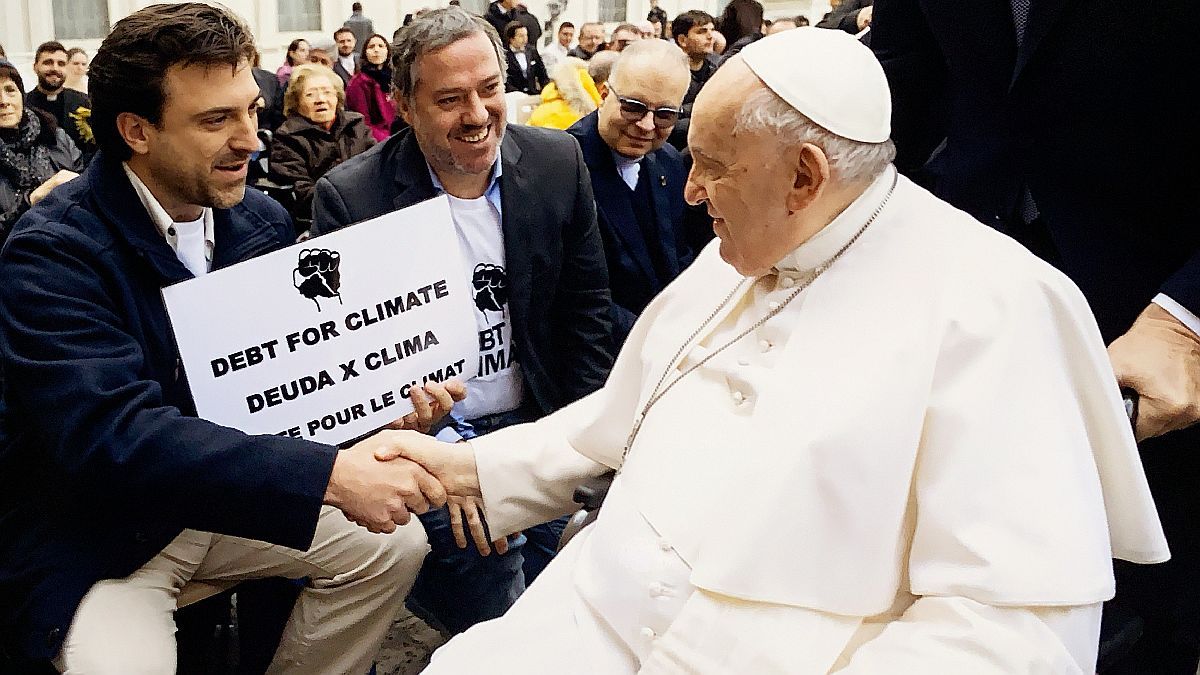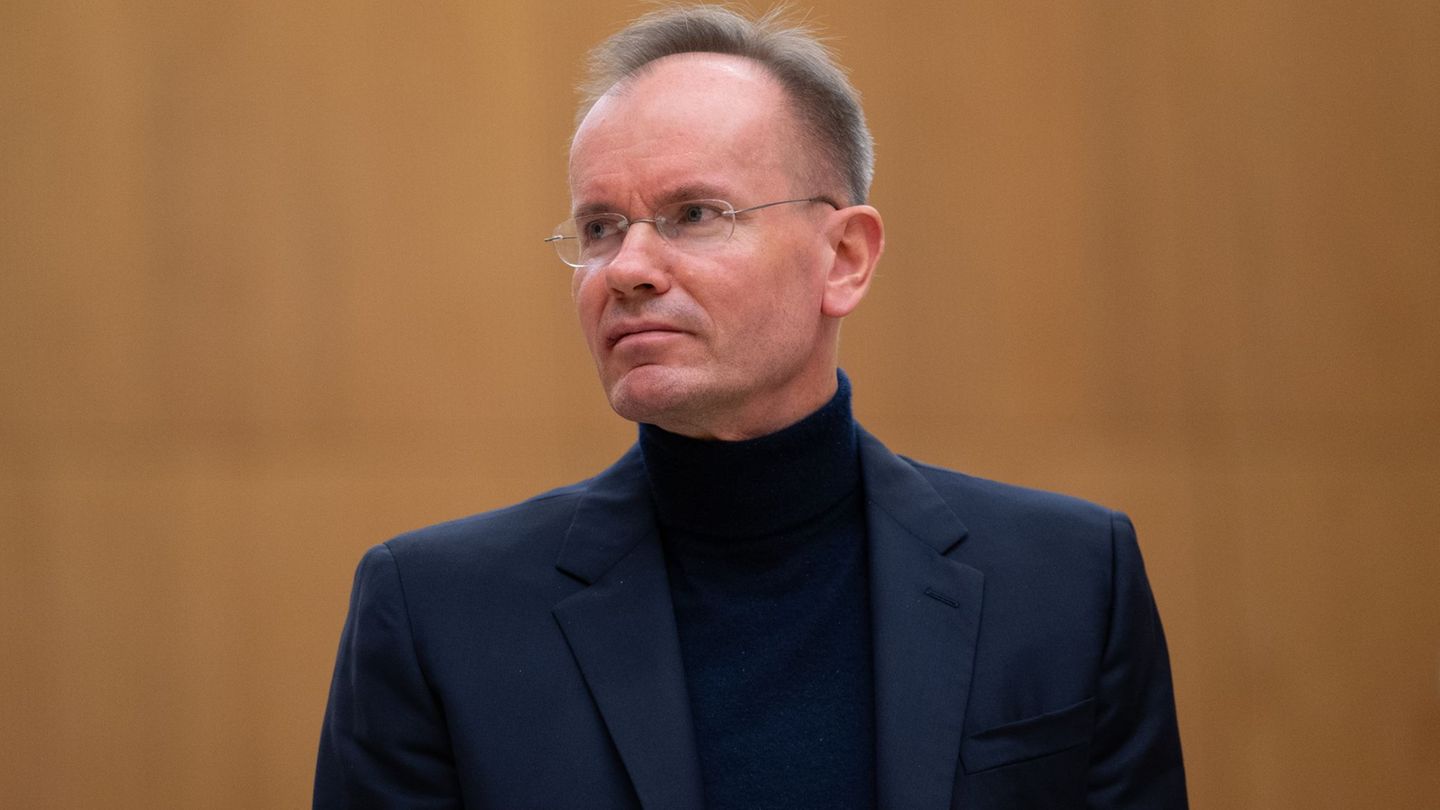Within the framework of the General Audience in the Vatican, Pope Francis spoke with the co-founders of the global Debt x Climate movement, Juan Pablo Olsson and Esteban Servat, and gave its support to this campaign that calls for the annulment of illegitimate financial debts imposed on developing countries to allow a just transition in a context in which the serious climate and ecological crisis is deepening worldwide, together with the serious crisis debt in most countries of the Global South.
“Thank you for your work bringing people together. Follow the legacy of Alcira Argumedo, she was a great woman. They have my support.”pointed out the Pontiff in St. Peter’s Square in the Vatican, alluding to the Latin American sociologist, who was the inspiration for the global campaign.
“Pope Francis has outstanding global leadership on the Social Justice and Climate Justice agenda. He is also a main referent in the claim of the Ecological Debt that the Global North has with the Global South and is clearly aware of how debts Illegitimate financing operations affect the economies of developing countries, in the context of the serious climatic and ecological crisis”, said Juan Pablo Olssonenvironmental sociologist, co-founder of Debt x Climate and coordinator in Latin America of the Progressive International.
“Our countries of the South suffer from illegitimate debts of trillions of dollars and pay hundreds of billions a year in interest alone. This prevents them from financing an adaptation to the climate crisis and forces them to deepen extractivism to pay the interest on the debt. Canceling those financial debts would free up urgently needed funds to finance a just energy transition and lead to an unprecedented climate breakthrough that would benefit all of humanity,” he said. Stephen ServatArgentine scientist based in Germany and co-founder of Debt x Climate.
Faced with this alarming scenario, the IMF and the World Bank intend to move forward with their agenda of greater indebtedness with the aim of deepening a system of exploitation of resources owned by the countries of the Global South, for the benefit of corporations and powers of the Global North, pretending to impose a neocolonial agenda that condemns those countries to be sacrificial territories and disposable populations.
The case of Argentina is an example of these debt processes: the country took a loan of around 44,000 million dollars that was not destined to Argentina, but was destined to capital flight. At once, It meant the largest loan in the history of the IMF and now Argentina is paying not only the debt, but also the highest interest rates in history. In this way, the countries of the South are condemned to deepen fossil exploitation, to deepen extractivism to pay the debt contracted and the leonine interests imposed in the negotiations.
While the developed countries of the Global North are responsible for the greatest greenhouse gas emissions, the countries of the Global South are the ones that will suffer the most from the consequences of global warming. It is estimated that, in the next decade alone, global warming will push an additional 32 million to 132 million people into extreme poverty, while also threatening global nutrition and increasing the incidence of heat-related mortality, heart disease and mental health problems.
Currently, between 3.6 and 4 billion people live in countries highly vulnerable to climate impacts, with global hotspots concentrated in Latin America and the Caribbean, the Pacific islands, Africa and Southeast Asia.
The movement Debt x Climate insists on the urgent need to advance a social justice agenda for the Global South, to avoid these serious social and environmental consequences in their countries. There is the historical precedent of the cancellation of the German Debt after the Second World War, to enable its economic recovery. The question that arises is: why, if it was possible for post-war Germany, is it not possible for the most impoverished and vulnerable countries on the planet?
On the other hand, the co-founders of the global movement also held a meeting with representatives of the International Transport Workers Federation (ITF) to discuss the articulation of a sustainable transport agenda and a possible articulation of workers to worldwide, with the climate and social movements, indigenous peoples, scientists and feminist movements, to build a unit of claims for the recognition of the ecological debt of developed countries and for the request for the cancellation of the debts of the Global South in the face of the crisis climatic and ecological.
Source: Ambito




